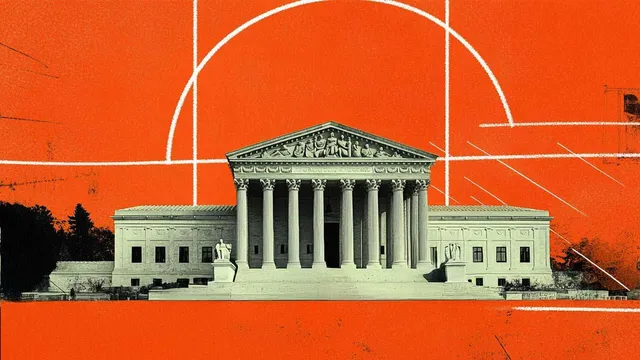
Supreme Court weighs decision on Texas speech law's scrutiny level
2025-06-10 00:00- The U.S. Supreme Court is reviewing key cases related to free speech and government accountability this June.
- The Free Speech Coalition v. Paxton case questions the level of scrutiny applied to age-verification laws.
- A ruling that reinforces strict scrutiny standards is crucial for protecting First Amendment rights.
Express your sentiment!
Insights
In the United States, the Supreme Court is set to make significant rulings on three crucial cases in June 2025. Among these is Free Speech Coalition v. Paxton, which questions how laws surrounding age verification should be evaluated in terms of constitutional scrutiny. The legal debate centers on whether these laws should undergo a rigorous strict scrutiny test or a more lenient rational-basis review, the latter of which is generally more favorable to the government. The 5th Circuit Court of Appeals had previously ruled to apply rational-basis review, a decision that raises concerns regarding freedom of speech. Advocates worry that a ruling in favor of Texas would negatively impact First Amendment rights, suggesting a potential shift in judicial interpretation of such cases. A ruling that maintains strict scrutiny standards would not only reinforce protections for free speech but also signify a commitment to holding governmental bodies accountable for laws that restrict individual rights. In a separate case, Tina Martin is seeking to sue the government for negative impacts allegedly caused by its actions, further emphasizing the need for accountability in governmental conduct. Legal experts note that the Supreme Court may face challenges in reaching a unanimous verdict on the nationwide injunctions issue raised by the Trump administration, which argues that such injunctions are unconstitutional, potentially leading to fragmented opinions that could leave critical questions unresolved.
Contexts
The implications of strict scrutiny versus rational basis review are critical in understanding how the United States judicial system addresses governmental actions that may infringe upon individual rights, particularly in the context of equal protection and due process. Strict scrutiny is the highest standard of review applied by courts when a law or policy is challenged on constitutional grounds, especially when it concerns a suspect classification or a fundamental right. Under this standard, the government must prove that its action serves a compelling interest and that it is narrowly tailored to achieve that interest through the least restrictive means. This places a heavy burden on the government to justify its decisions, resulting in a stricter examination of laws that may bear disproportionately on certain groups, such as racial minorities or those exercising free speech rights. The application of strict scrutiny has often led to the invalidation of laws and policies perceived as discriminatory or overly broad, reflecting the judiciary's commitment to protecting individual liberties against government overreach. In contrast, rational basis review is a much more lenient standard. When courts apply this level of scrutiny, they generally presume that government actions are constitutional, requiring only that the law be rationally related to a legitimate government interest. This means that the burden of proof is on the individual challenging the law to demonstrate that there is no conceivable legitimate purpose for the government action in question. Rational basis review often results in significant deference to legislative judgments, making it difficult for plaintiffs to succeed in their challenges. Laws subjected to this review are usually upheld unless they are shown to have no reasonable foundation, leading to a broader latitude for the government in enacting social and economic regulations that may inadvertently affect certain groups. The consequences of these two standards are profound, not only for case outcomes but also for the broader social understanding of justice and equality. Stricter scrutiny can enhance protections for marginalized groups and safeguard fundamental rights, thereby encouraging a more equitable legal landscape. This can foster social change by requiring governments to critically reassess laws that perpetuate stereotypes or inequalities. Conversely, rational basis review can allow for social policies that, while potentially prejudicial to specific segments of the population, are seen as promoting general societal welfare or economic interests. Consequently, the potential for abuse under this standard can lead to reinforcing systemic inequalities, raising concerns about the accessibility and fairness of the legal system for those seeking redress against government actions. In summary, the distinction between strict scrutiny and rational basis review lies at the heart of legal determinations regarding equality and individual rights. While strict scrutiny serves as a powerful tool for protecting vulnerable populations against legislative discrimination, rational basis review often prioritizes the legislative prerogative, sometimes at the expense of justice. Ongoing debates about these standards reflect continuing tensions within American society regarding how best to balance governmental interests with the protection of individual rights, illustrating the dynamic nature of constitutional interpretation and civil rights advocacy.